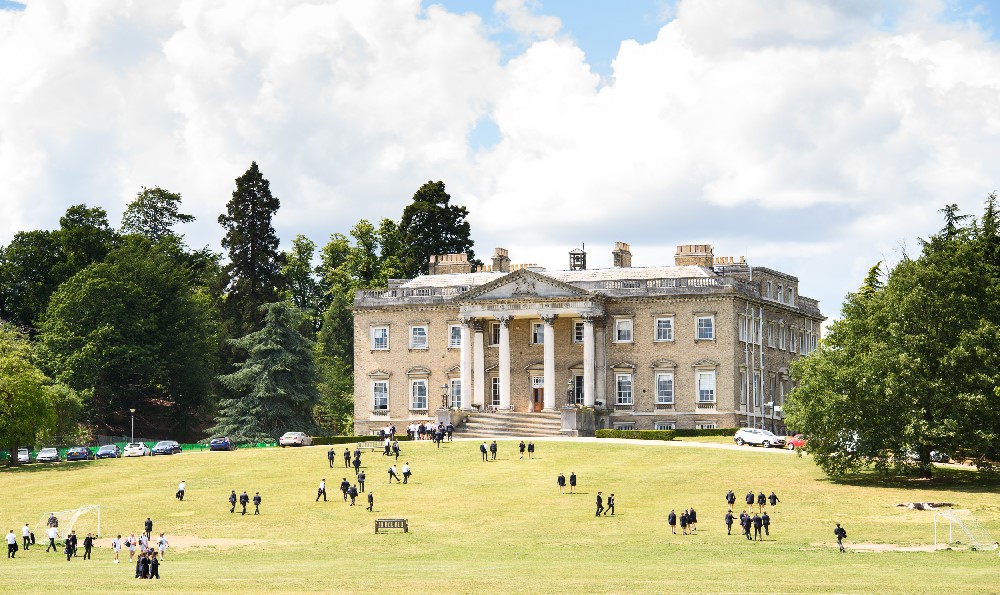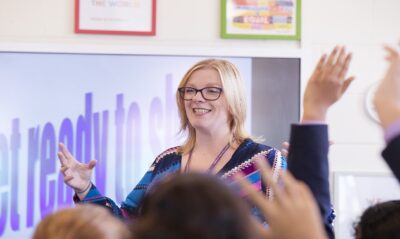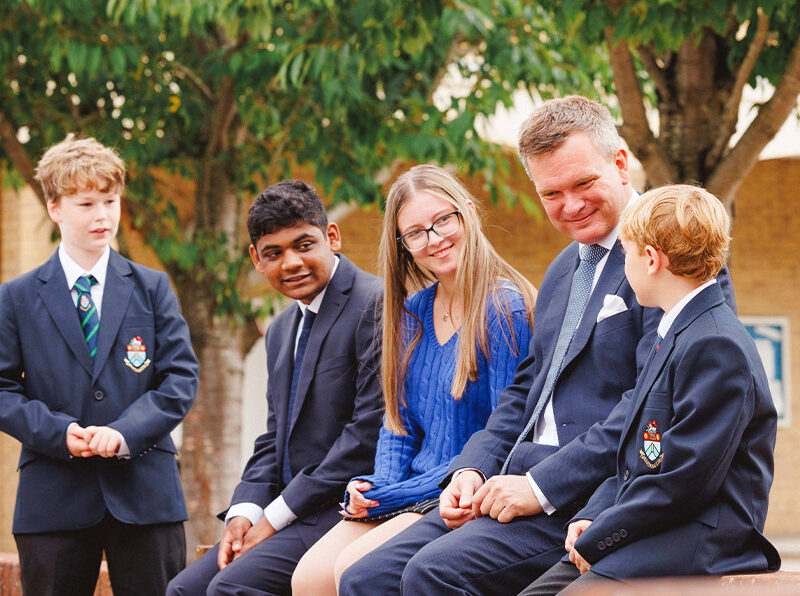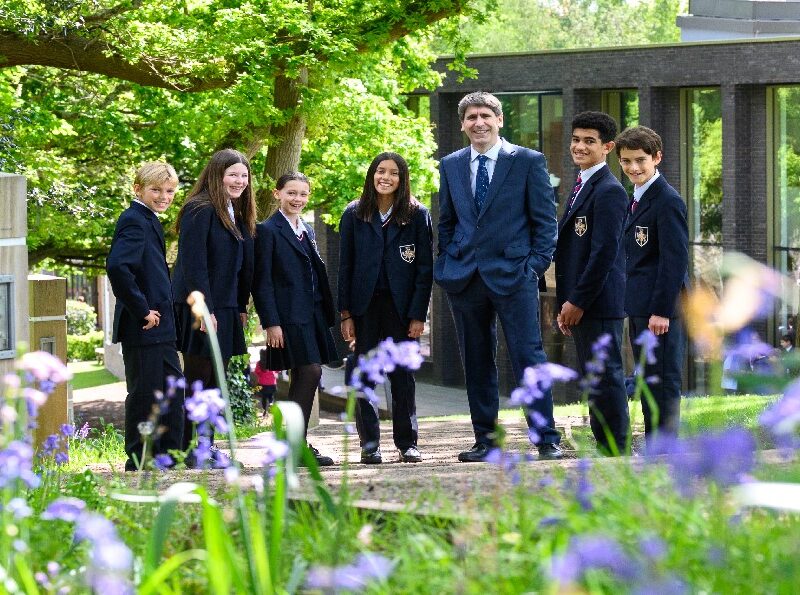
GCSE Choices
GCSE Choices
What families need to know about this key decision.
Pictured: Claremont Fan Court School
One of the big choices in your child’s educational life is what subjects they should take at GCSE. Common questions include how they will impact their future study options and even their potential career path, how to choose subjects they will enjoy and excel at, even what some of the alternatives might be. And it’s worth considering all this early on when actually choosing the secondary schools you want to apply to – there can be a big difference in what’s on offer.
Claremont Fan Court School in Esher offers a choice of over 30 GCSEs. Says head William Brierly: “The breadth of GCSEs on offer have been adapted responsively over the past five years to reflect the interests of our pupils and the changing demands of industry and the modern workplace.
“In choosing a school, we would always recommend ensuring that your child’s passions and interests can be fulfilled by the curriculum offered. If your child is a budding fashion designer, look for creative subjects such as textiles design and photography, similarly if they are interested in studying maths at university, consider if the school offers mathematics extension subjects such as Further Mathematics or Statistics. All good schools should offer a comprehensive GCSE curriculum brochure and ideally a careers advisor, who can explain the types of subjects required at GCSE and A level for entry into your child’s chosen areas of study for university, higher education or the workplace.”
There are three core objectives to keep in mind:
- Opt for GCSEs that will allow you to achieve the best possible grades and make the most of your hard work – this will in turn facilitate maximum opportunities in terms of further study, career paths and option
- Choose a GCSE curriculum where you will love learning those subjects, be happy and have fun studying – pupils are always at their most successful when they are doing what they love.
- Ensure that your GCSE choices cover your future options for further study and professional life – if you have a fixed idea about a future career, then it is sometimes necessary to choose particular GCSE options. However, be careful when doing this when it is at the expense of a subject you love or would prefer to study.

Pictured: Beth Dawson, Sutton High
Says Sutton High head, Beth Dawson: “It is so important that pupils choose their options based on what they enjoy and feel they will succeed in. Research tells us that confidence in a subject is the biggest indicator of success at GCSE level, and we know that students, especially at this age, build confidence when they relish learning in a subject.
“My advice is always to select the subjects that you love, if you can, taking no notice of the choices your friends make, the teacher you think you might have, or the (incorrect) belief that some subjects are worthier than others. The truth is that, outside of the core subjects which everyone studies (Maths, English and Science), it is the quality of the grade, rather than the subject, which makes the most difference.”
At Sutton High School, all pupils study for nine GCSEs, with the option to add Additional Maths as a tenth. She adds that it is key to look at how your GCSE choices will impact your workload and how the GCSE will be assessed. “The content of GCSEs became much wider when they were reformed in 2016, and universities will look at your top eight grades, so taking nine GCSEs is plenty, and this may still mean that you sit up to 22 examinations in Year 11, as many subjects will divide their heavy content over two or three papers, so do keep this in mind when selecting your choices. Most subjects outside of the arts and design will no longer have coursework, so it is wise to ask how many papers you will be revising for. For example, Drama GCSE typically has one longer paper, whereas Geography GCSE will have three shorter exams.”
Check too how a school schedules its timetable. Some schools divide choices into blocks, with the pupil only able to select a subject from each block. Others may not have blocks but may insist that all pupils take a language or that everyone must choose a humanities subject. Some will have ‘forbidden’ combinations, such as not being allowed to take PE and Dance. Ask how Science is offered, with some schools offering a choice of combined or separate sciences.
Adds Beth: “When I was at school, I really wanted to take Business Studies and Drama for GCSE, but even in my big grammar school, we were limited by ‘options’ blocks – which meant that I couldn’t select both, as they were on the same ‘block’. This limitation felt so harsh when I was a Year 9 pupil and this has led to us having a completely ‘open’ options system at Sutton High School, where our girls can play to their individual strengths, selecting any four options, which we timetable for. There are no blocks, no compulsory choices (outside of the core) and everyone gets their first choices.”
Choice of available GCSEs are wide and among the traditional options, the range a school offers might include Mandarin, Psychology and Computer Science.
Says Beth: “It always surprises me how few prospective parents ask us about the GCSE options process when looking around for Year 7. For me, having felt so very limited by this when I was 14, I feel this should always be a very key part of deciding upon a school. When your child is in primary school, they have yet to discover their passions or educational talents, so look for a school that offers a broad subject range and as much choice as possible, to leave all options open.”

Pictured: Liberty Woodland School
An alternative to the GCSE pathway altogether is the International Baccalaureate. Liberty Woodland School in Morden notes that the IB has been growing in popularity as an option. The assessment process for the IB Middle Years Programme consists of portfolios for some subjects with exam-based e-assessments for others.
Between 2018 and 2022, the number of IB programmes offered worldwide grew by over 34%. “The IB offers a broad range of subjects and a deep level of learning, including knowledge acquisition as well as the development of skills and attributes that prepare young people for a changing world,” says Leanna Barrett, founder and headteacher. “Children entering school now will eventually work in careers that don’t even exist yet. Crucial skills for employment and indeed for coping with the exciting, challenging and unknown future ahead of us will be critical thinking, creativity, problem solving, collaboration and leadership, international mindedness, and agility and adaptability and these are the very areas that the IB focuses on.”
Whichever route you consider, it pays to weigh up what is on offer early, as there are so many more options available.






